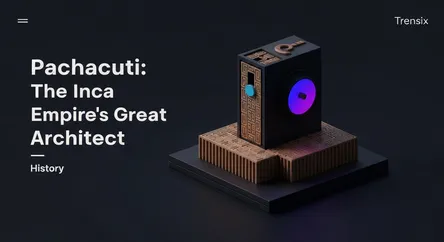History
Pachacuti: The Inca Empire's Great Architect

Discover Pachacuti, the ninth Sapa Inca who transformed a small kingdom into the vast Inca Empire and commissioned the creation of Machu Picchu.
What is it?
Pachacuti Inca Yupanqui was the ninth Sapa Inca, or emperor, who reigned from 1438 to 1471. His name translates to "Earth-shaker" or "He who transforms the earth." He is widely regarded as the founder of the Inca Empire, transforming the small Kingdom of Cusco into a vast, organized state called Tawantinsuyu that stretched across western South America. A brilliant military strategist, he initiated an era of conquest that vastly expanded Inca territory. Beyond his military prowess, Pachacuti was a visionary builder, credited with redesigning the capital city of Cusco and commissioning iconic architectural marvels like Machu Picchu.
Why is it trending?
Pachacuti's story remains a subject of fascination due to his monumental impact on South American history. His dramatic rise to power, defending Cusco after his father fled an invasion, is a legendary tale of leadership. The global fascination with Inca civilization and its achievements, particularly the world-renowned citadel of Machu Picchu, keeps his legacy in the spotlight. As a key figure in pre-Columbian history, his reign represents the zenith of Indigenous statecraft, engineering, and culture in the Americas, making him a perennial topic of historical and cultural discussion.
How does it affect people?
Pachacuti's legacy is deeply embedded in the modern Andean cultural identity, especially in Peru. The political, social, and road systems he established unified a diverse region for generations. Today, his architectural achievements are cornerstones of Peru's tourism industry, driving economic activity and attracting millions of visitors to sites like Cusco and Machu Picchu. For historians and archaeologists, his reign provides crucial insights into the complexities of empire-building, administration, and religion in a major non-Western civilization, shaping our understanding of the past.